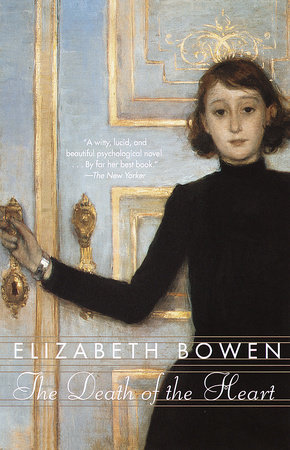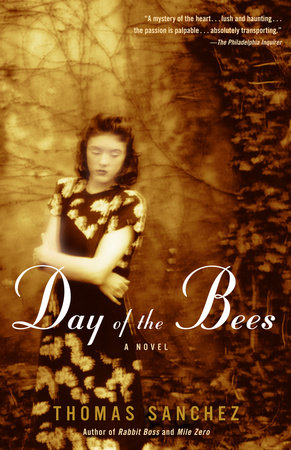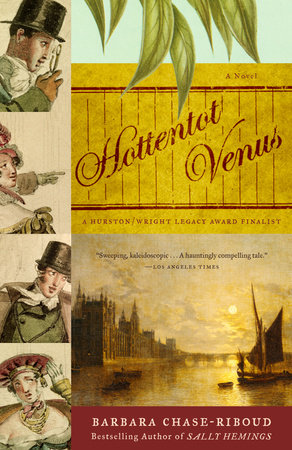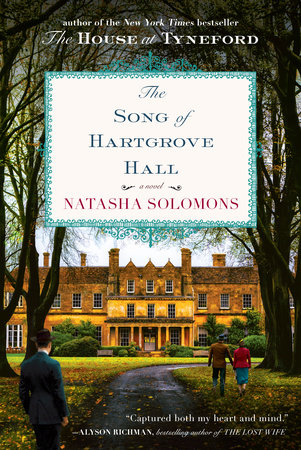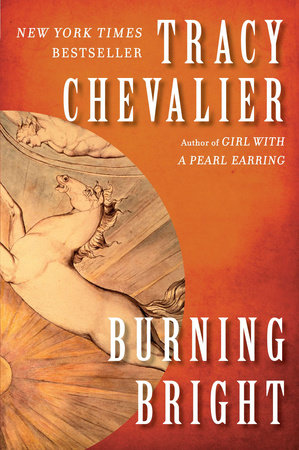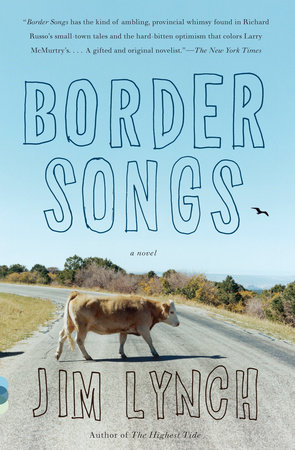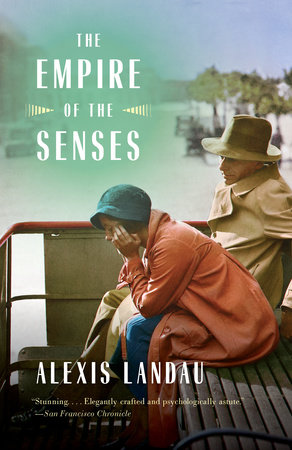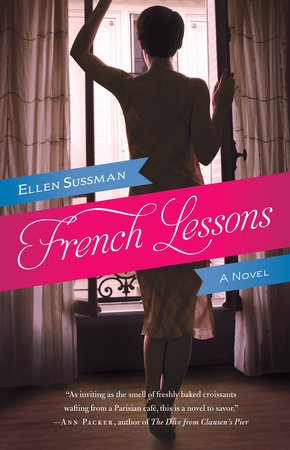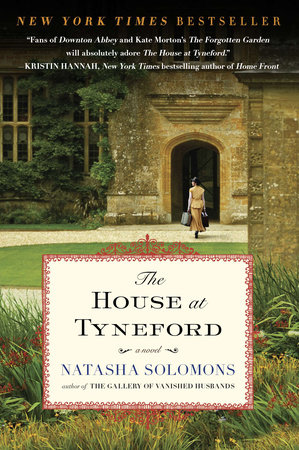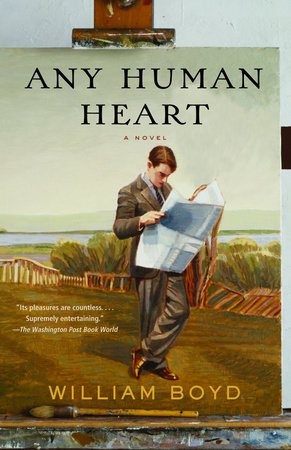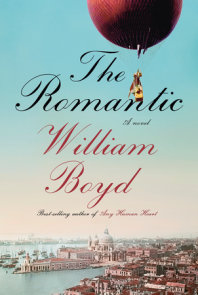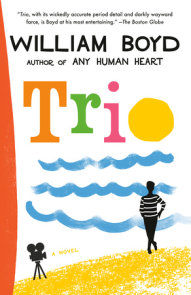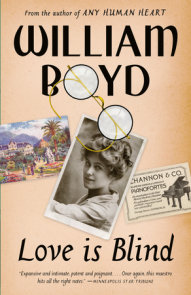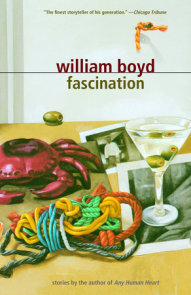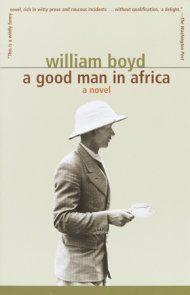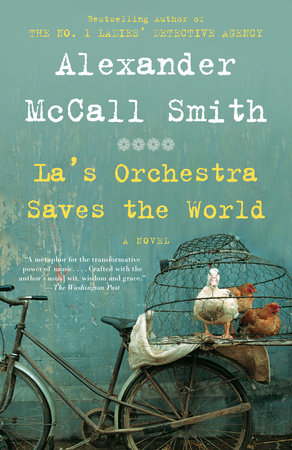Author Q&A
A Conversation with William Boyd
Q: ANY HUMAN HEART, your last novel Nat Tate, and your novel The New Confessions are all fake biographies (or in one case an autobiography). Why are you drawn to the concept of chronicling a single person’s entire life?
A: One of the best definitions of the novel is D.H. Laurence’s. He described the novel as "The bright book of life"—and I suppose that the human condition—the investigation of human nature—is the novel’s primary subject. The novel does our lives, our being-humanness, better and more richly than any other art form available. So to track an entire life with all its ups and downs, triumphs and tragedies seems to me an obvious and satisfying thing to do.
Q: In ANY HUMAN HEART we follow the life of writer-adventurer Logan Mountstuart via entries in his personal journal. Why did you decide to use this format for the novel?
A: Having tried the other formats available to any writer to tell the story of a life, I realized that the literary form that most fits the way we actually live is the journal. Other forms—autobiography, biography, and memoir—are all much shaped and therefore fundamentally artificial. The journal is written day by day without benefit of hindsight. The significance—or banality—of events is not apparent. Which is how we live, in fact, taking life as it comes, not knowing about the meaningful forking paths in the road ahead. So in a journal—even a fake journal like ANY HUMAN HEART—we get life in all its randomness and unpredictability. We see how all lives are shaped by chance, by hazard, by happenstance. Your life is really the aggregate of all the good luck—and all the bad luck—you have experienced. As true for Logan Mountstuart as it is for the rest of us.
Q: Why did you make Logan a writer? Are there shades of William Boyd in Logan Mountstuart?
A: I made him a writer because he was inspired initially by real writers. I am fascinated by the life and work of that generation of English writers who were born at the beginning of the century and reached maturity by the time of World War II. People like Evelyn Waugh and Graham Greene and Anthony Powell, obviously, but also less well known writers—Henry Greene, Laurence Durrell, Cyril Connolly and Wiliam Gerhardie. The last two in particular lurk closely behind Logan. I wanted to invent my own exemplary figure who could seem almost as real as the real ones and whose life followed a similar pattern: boarding school, university, Paris in the 20s, the rise of Fascism, war, post-war neglect, disillusion, increasing decrepitude, and so on—a long, varied and rackety life that covered most of the century. Thus it follows that there’s not a lot of William Boyd in Mr. Mountstuart. I share some of his tastes—for painting, for French poetry, for example, but none of his vices—idleness, moral laziness, procrastination, self-indulgence (or so I hope)…
Q: Logan’s life spans virtually the entire 20th century. How did you decide what would happen to him? Did you outline the century first and fit Logan into world events, or did you make up the story as you went along?
A: Logan’s life, curiously enough, takes him to places and involves him in events that I myself am very interested in: Paris in the 1920s, the Spanish Civil War, the Duke of Windsor’s time as governor of the Bahamas, the New York art scene of the 1950s—and so on. I always work in the same way: I never start until everything is figured out—so I spent a long time planning Logan’s 85-year journey through the 20th century. It was very deliberate but the challenge was to make it appear random—and therefore life-like.
Q: Throughout the journal, Logan is an impressive name-dropper. He has drinks with Hemingway and is sketched by Picassso. How did you decide which famous figures to include?
A: This is part of the search for authenticity. If you were a successful young writer in the 1920s you would be bound to meet other successful writers and artists and move in a recognizable artistic society. It would have seemed odd if Logan hadn’t met anyone "real" so I had him encounter and tangle with all manner of people whose portraits I was keen to present: Hemingway, Virginia Woolf, Picasso, the Duke and Duchess of Windsor, Ian Fleming, Jackson Pollock etc. He meets lots of fictional people as well (not least his three wives) but this leavening of real personalities in his life-story was to make his journal seem true, convincingly real.
Q: Logan’s voice gradually changes as he grows up and understands more of how life works. Was it difficult to age Logan from a young student to an old man?
A: This was another challenge and to do with one of the main themes in the book, namely that we as people are not consistent and unchanging and that over the course of a life we are actually many different "selves"—not one self. I wanted the literary tone of each journal to reflect this and so the voice subtilely changes as you read on: from pretentious school boy to modern young decadent, to bitter realist to drink soaked cynic, to sage and serene octogenarian, and so forth. I wanted the reader to have a palpable sense of Logan ageing and changing as he’s buffeted by life and struggles onward.
Q: As in all of your novels, there are some odd names in this book. Why are you so interested in names?
A: Actually I think the names in my novels are wholly authentic. Open any telephone directory and you’ll find odder names than anything I could invent. People have strange names, it’s a fact. I was taken to task over this very matter by an English journalist until I pointed out his own name—James Dellingpole. Oh, he said, I see what you mean. On a more literary matter I think if a character is named correctly he or she already begins to breathe, to come to life. Characters called Fred Smith or Sally Brown don’t really seem alive to me—even though Fred Smiths and Sally Browns do exist.
Q: It must have been strange for you to come to the end of Logan’s life. Did you know at the beginning of the book how he would end up?
A: I did. I knew exactly how, where and when Logan would die. But the key thing was not to let this knowledge inform the life—his life—as I wrote it. Still, it was a strange and moving moment when I killed him off, as it were. I had written his life chronologically, from start to finish, without jumping around, and felt I knew him better, possibly, than any other character I had invented. For a few moments it was like an actual loss—the emphatic and saddening sense of his journey ending. But then I became a ruthless, cold-hearted, clear-eyed novelist again.
Q: The novel’s index is very funny. How did you come up with the idea to include it?
A: Again, the search for authenticity and plausibility: to encourage the reader’s suspension of disbelief. To encounter an index at the end of a novel is extremely rare and somehow questions the novel’s fictionality—for a second or two. It was great fun to compile as well—you have in the index Logan’s life in microcosm and it can almost be read independently: you’d get a sense of who Logan Mountstuart was and what his life contained.
Q: What is the significance of the title ANY HUMAN HEART?
A: It’s to show that for all his individuality and his idiosyncrasies, Logan is, in fundamental matters, just like every other human being, man or woman. His life, in its simple humanity—its desires and disappointments, its needs and its traumas—is exemplary, like all human lives.
Q: In addition to novels, you’ve written screenplays, scripts for television, short stories, essays on art. Do you prefer one form over the others?
A: I’m a novelist, first and foremost—there is no freer, no more generous art form in which to immerse yourself—all others involve some kind of compromise. But I love movies and I enjoy collaboration—many of my friends are actors and film directors. Working in film and television satisfies the more convivial side of my personality.
Q: Your novel ARMADILLO was recently made into a television film for A&E. Were you pleased with the result?
A: Extremely pleased. I thought the lead actor, James Frain, was exceptional. The key thing was that it functioned as a successful drama without requiring any knowledge of the book.
Q: Are any of your other novels or stories being made into a film?
A: We are trying to make a film of THE BLUE AFTERNOON, with Bruce Beresford attached to direct. I’ve also adapted two of my short stories: "Cork" and "The Destiny of Nathalie X" as films (low budget, art-house) and they are struggling on.
Q: You recently wrote and directed your first feature film, The Trench (1999). What was that experience like?
A: It was both tremendously enjoyable and daunting. I knew a lot about the process of filmmaking because of all the screenplays I’d had produced, but I’d never had to work with actors before—and for me that was the big question mark. In fact it all went extremely well. I was ludicrously over-prepared (I had personally story-boarded the entire film) and I had a crew that Stanley Kubrick would have been proud of. In fact, it was such a good experience that I have written a script—a noirish thriller called Stone Free –that I hope to direct in the near future.”
Q: We’ve heard a lot lately about actors who try their hand at directing a film they also star in (Denzel Washington, George Clooney). Is it more difficult to direct a film that you have another key role in, in your case as screenwriter? Is it more difficult if you don’t have distance on the project?
A: I think that the more intimately you know a film project—the closer you are to it—the better. Also it is a true collaborative medium: there are lots of other eyes looking on and lots of other opinions to seek, and I was very happy to take advice if I ever felt uncertain. As a screenwriter I’m naturally very suspicious of the “auteur” theory—but as a writer/director I think you do get a bit closer to that perfect autonomy you have as a novelist: in film terms it’s the best of all possible worlds. You get to make all the final decisions (as director) and you have all the answers to any questions that may arise (as writer). For some reason I have a hunch it would be much harder to act in the film you were directing—who’s going to give you acting notes?”
Q: What are you working on now?
A: I’m currently writing some new short stories as I plan to bring out a new short story
collection in 2004 (my third). I’ve published about six stories in the New Yorker over the last few years and with a couple more new ones I’ll have enough to make a book. I’ve also just completed my first stage play—a comedy about Jean Jacques Rousseau and a disastrous love affair he embarked upon in 1757—everybody behaves extremely badly.



